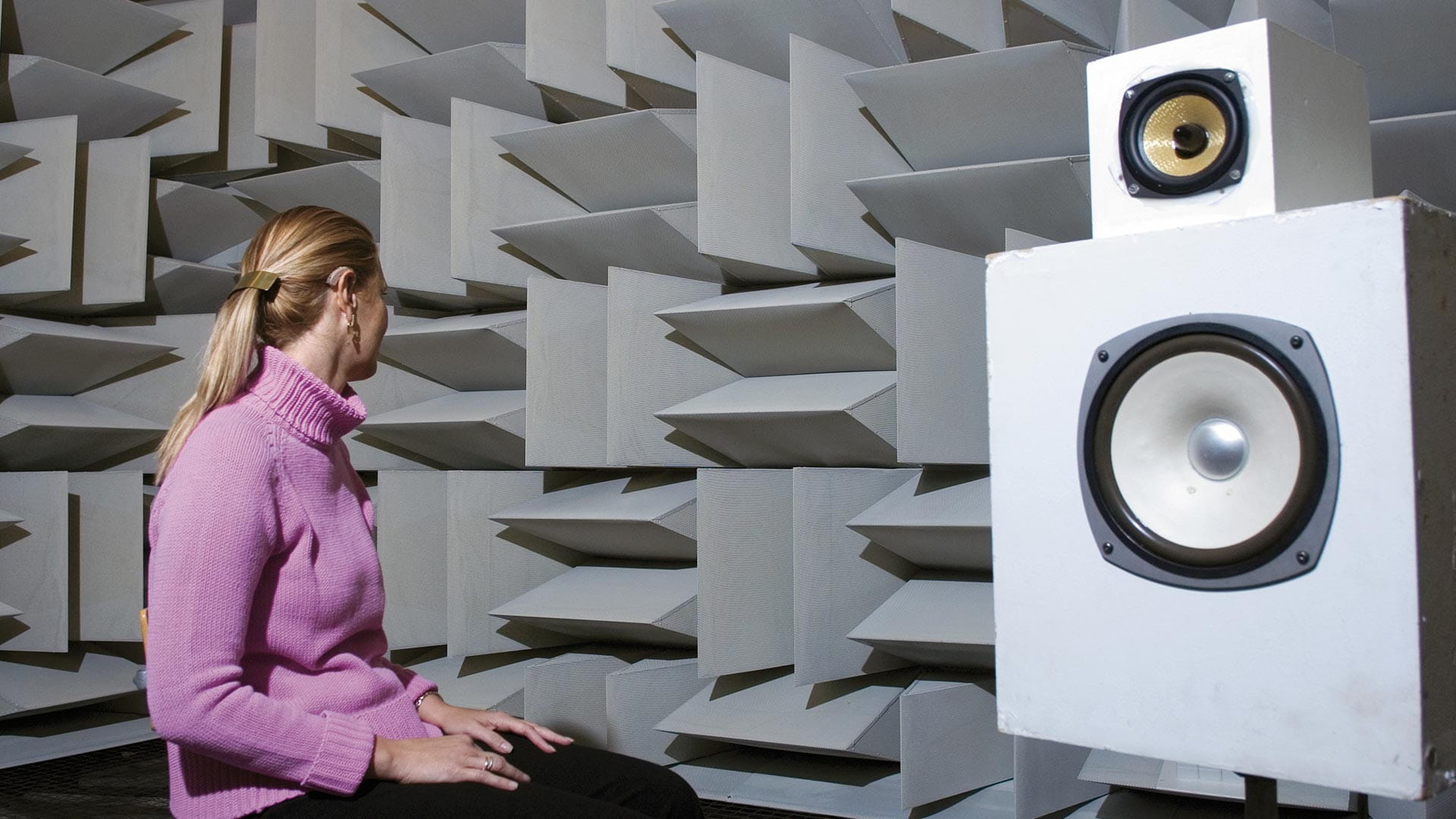
The Sound of Silence: The Widex Anechoic Chamber
Welcome to the silent room. It is a room so silent that sounds are below the hearing threshold of the human ear. When the door shuts you can hear the blood rushing through your ears and your stomach digesting your breakfast. Some people find the lack of sound dizzying, while others find it meditative.
Created Updated
The first thing you notice when you step inside the silent room is the floor or, more specifically, the lack of one. All sides of the room are covered with triangular sound absorbers. A metal net sits on top of sound absorbers on the bottom of the anechoic chamber to allow engineers to walk in it.
The entire room sits on giant springs and has its own concrete foundation, both to remove vibrations from production machinery and traffic. Inside, it is like standing atop a large trampoline. At the center sits the most popular guy at Widex: the KEMAR
What is a KEMAR?
The KEMAR is a head and torso test dummy. You may think of a test dummy as something used to test car safety. But at Widex, we use it to test hearing technology. Our test dummy setup:
- Detachable ears: Sound engineers have several mountable ear modules to choose from; to see how different shapes of ears affect the sound.
- 360° rotation: Rotate the mannequin to test how sounds from different directions are picked up.
- Head and torso simulation: Built proportionately to an average person, we can simulate the use of a hearing aid in a standardized setup, with sounds entering from different directions, to see how our hearing aids perform.
How we use the silent room
Hearing aids are not simple sound amplifiers. They are complex microcomputers that adapt to the listening environment that you are in. When we design hearing aids, we make sure that they will work in all listening environments – whether that is a crowded city street, a windy sailboat, or a great concert.
A lot of our hearing aid testing uses real people in real places, but we get great insight from investigations done under ideal conditions like that found in the anechoic chamber. Here, we can test sound direction and performance in a controlled environment.